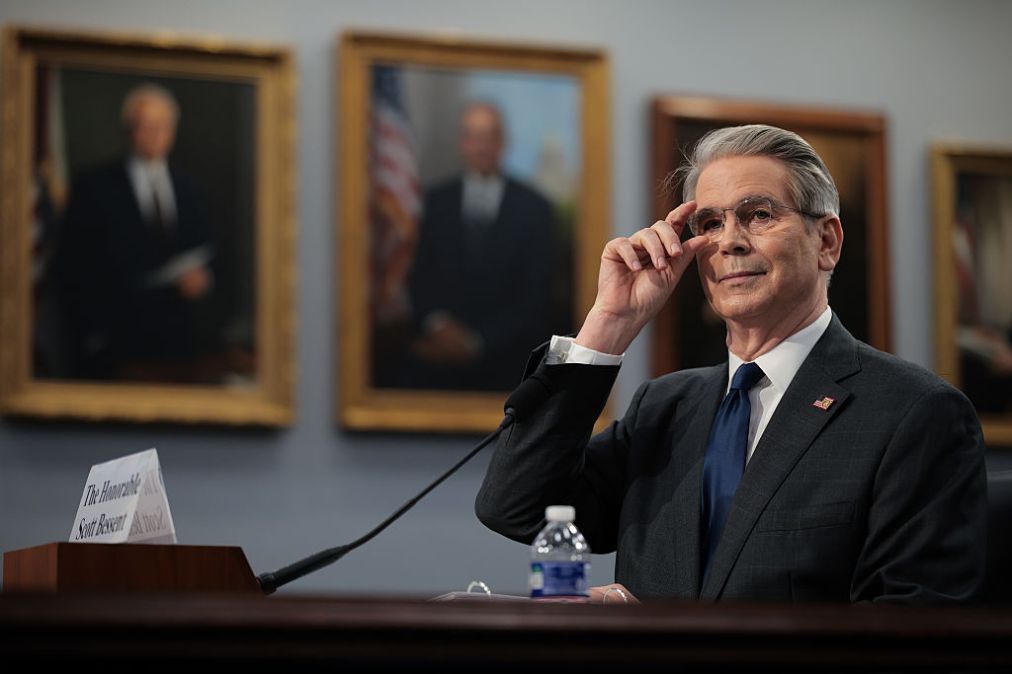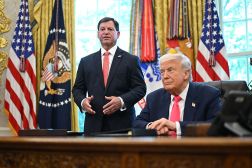‘AI boom’ will make up for IRS workforce cuts, Treasury secretary says

Drastic cuts to the IRS workforce won’t impact tax collection because an “AI boom” will pick up the slack, Treasury Secretary Scott Bessent told lawmakers Tuesday.
Appearing before the House Appropriations Committee, Bessent was peppered with questions about the overhaul of the IRS in recent months, including the slashing of the tax agency’s IT budget and widespread staff reductions across collection and enforcement functions.
A Treasury Inspector General for Tax Administration report released last week found that as of March, the IRS’s workforce had shrunk 11%, with 11,433 IRS employees terminated since President Donald Trump took office.
According to the TIGTA report, 18% of the IRS’s revenue officers — staffers who work to collect delinquent taxes, survey for unreported taxes and secure delinquent returns — have been cut from the agency. Another 31% of revenue agents and 10% of tax examiners — job functions that also have collection responsibilities — have also been dismissed.
Rep. Steny Hoyer, ranking member of House Appropriations’ Financial Services and General Government Subcommittee, noted that Treasury’s budget proposes additional “substantial cuts” to the IRS, with another 40,000 jobs or so to be eliminated, including up to half of the agency’s enforcement staff. Despite those planned cuts, the Maryland Democrat said Bessent promised him during a prior meeting that he was “not going to … sabotage collections.”
When asked by Hoyer if he was still confident that cuts wouldn’t negatively impact the collections process, Bessent pushed back against the idea that a bigger enforcement staff would be more effective than leveraging tech to do the work.
“There is nothing that shows, historically, that by bringing in unseasoned collections agents, that that … results in more collections or high-end collections,” Bessent said. “So I believe, through smarter IT, through this AI boom, that we can use that to enhance collections. And I would expect that collections would continue to be very robust, as they were this year.”
IT modernization, Bessent said, was key to improved agency operations. The secretary took a victory lap in his opening statement on making over $2 billion in cuts to the IRS IT budget “without any operational disruptions.” Several former, high-ranking IRS IT executives have told FedScoop that the impact of those cuts will likely be felt during the next filing season.
“We achieved these cost savings by eliminating, renegotiating, and descoping wasteful IT and professional services contracts and addressing longstanding inefficiencies such as auto-renewed licenses unused for years,” Bessent said. “This intervention alone will save taxpayers hundreds of millions of dollars each year.”
Bessent also touted the administration’s push to reduce paper processing — an initiative well underway during the Biden era that the secretary acknowledged is a “longstanding bipartisan goal.” Via policy changes and an embrace of automation, Bessent said Treasury is targeting a $20 million reduction in those expenses by the end of Trump’s term.
Democrats also pressed Bessent on the so-called Department of Government Efficiency’s involvement with the IRS. Hoyer raised concerns about “DOGE operatives rifling through IRS databases” that contain Americans’ sensitive information, while Rep. Glenn Ivey, D-Md., asked how a 25-year-old DOGE staffer with a history of racist social media posts was granted access to systems that house the public’s financial data.
That staffer, Bessent said, was dismissed from the department after the Wall Street Journal unearthed his racist posts (though he was quickly rehired by the Trump administration and deployed to other agencies).
And as for DOGE at large, Bessent said the Elon Musk-led group’s work to “constrain the spending” is “admirable, important and necessary.”
“As I’ve continually pointed out, DOGE is the Office of Government Efficiency, not the Office of Government Extinction or Eradication,” he said. “So I think that it is not a big leap to do much more with less.”






